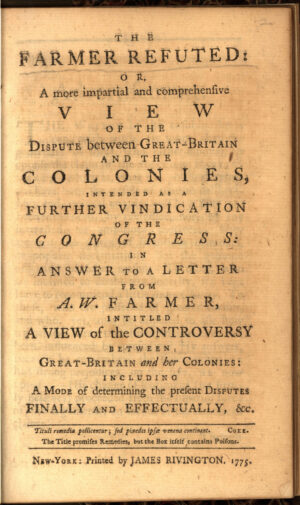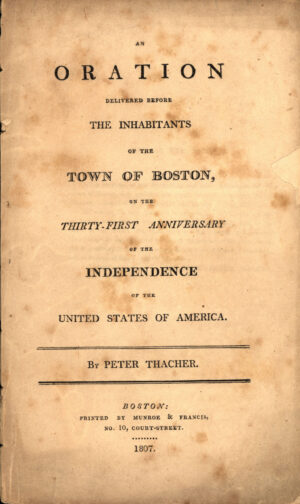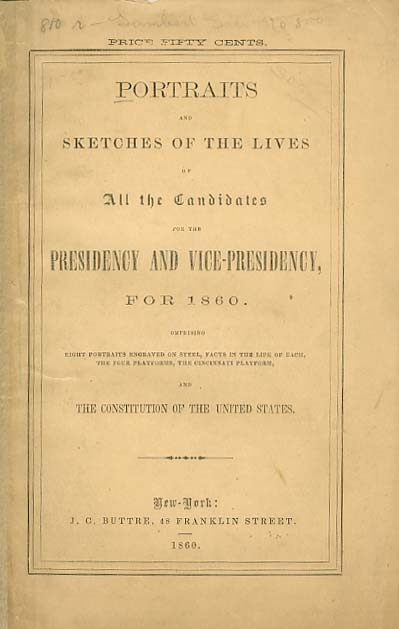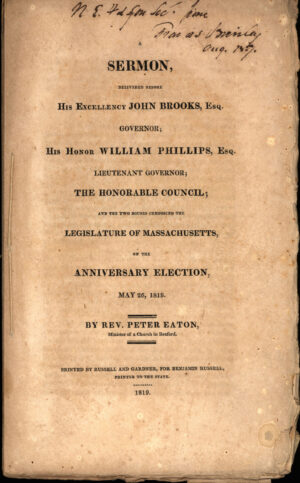Pamphlets are brief, unbound publications. With the explosion of the printing in the early sixteenth century, pamphlets became a dominant form of printed communication in Europe. In England, and later in the American colonies, pamphlets were printed on every topic, including: religion, politics, social and literacy criticism, short fiction, and autobiography. Pamphlets filled the information gaps left by newspapers of the day, which were usually limited to government action and the most important local happenings. Small, relatively inexpensive to manufacture, and easily sharable, pamphlets became one of the chief forms of interpersonal communications in the seventeenth and eighteenth centuries.
American political pamphlets became a vehicle for debate about Parliamentary action and the colonial response leading up to the Revolutionary War. One such pamphlet is Farmer Refuted, authored by Alexander Hamilton discussing the political relationship between Great Britain and the colonies. Throughout the war, pamphlets were an outlet for citizens to share their opinions on the war and Congress. With the formation of the new government, and the rise of political parties in the 1790s, political pamphlets became tools of the parties and leaders to share policy proposals and attack opponents, as well as celebrating public events and political anniversaries, such as Election Day and Independence Day.
The volume and influence of pamphlets waxed and waned throughout the nineteenth century, depending on the political dialogue and candidates’ personalities.
Pamphlets were also ways to republish speeches and public addresses for wider audiences. One such address was the Election Day sermon. Common in New England in the eighteenth and early nineteenth centuries, Election Day sermons were part of Election Day celebrations (Election Day was considered a holiday) or the opening of a legislative session. The purpose of the sermon was to remind government officials of their duty to govern well, and the people to honor the decisions made by the legislature.





